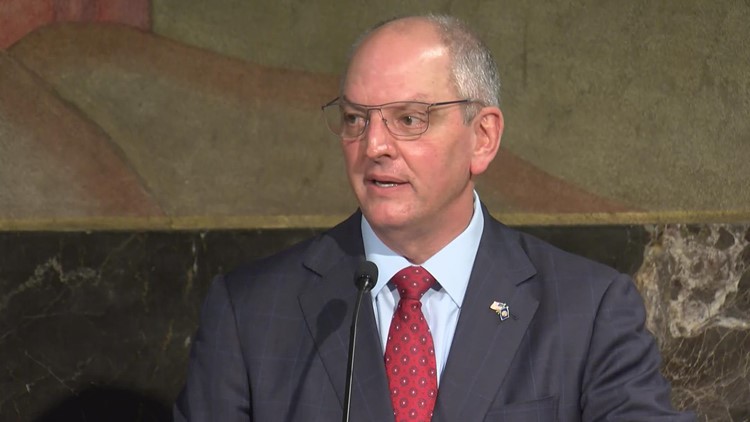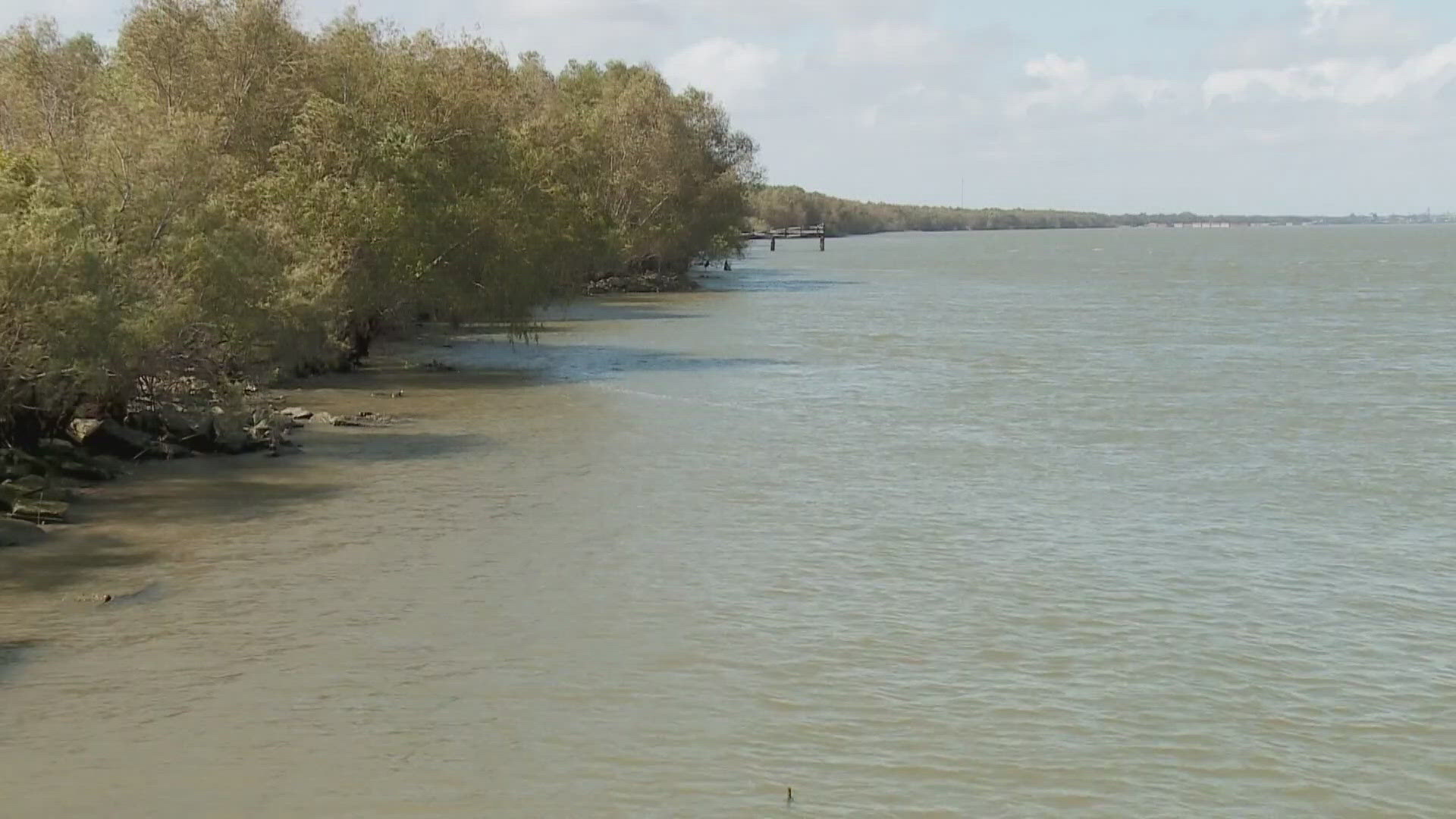BATON ROUGE, La. — Declaring “no cover-up will be tolerated,” Louisiana’s top GOP lawmaker announced a bipartisan legislative investigation Thursday into the deadly 2019 arrest of Black motorist Ronald Greene, an inquiry that will examine the state's response at “all levels," from troopers to the governor.
House Speaker Rep. Clay Schexnayder said he launched the probe in response to an Associated Press report last month that showed Democratic Gov. John Bel Edwards was informed within hours that troopers arresting Greene engaged in a “violent, lengthy struggle,” yet he kept quiet for two years as state police told a much different story to the victim’s family and in official reports: that Greene died from a crash after a high-speed chase.
“These events have raised serious questions regarding who knew what and when,” Schexnayder said in a statement. “The actions taken that night and the cryptic decisions and statements made every step of the way since then have eroded public trust."
Edwards, who was in the midst of a tight reelection campaign at the time of Greene’s May 2019 death near Monroe, did not speak out in detail about the case until last May, after the AP obtained and published long-withheld body-camera video showing white troopers jolting Greene with stun guns, punching him in the face and dragging him by his ankle shackles as he wailed, “I’m your brother! I’m scared! I’m scared!”
Edwards released statement Thursday saying, “I welcome any and all legislative oversight and hope that this will be a productive, nonpartisan discussion of how to continue the ongoing reforms at Louisiana State Police so that what happened the night of Ronald Greene’s death never happens again. Like so many others, I am anxiously awaiting the outcome of the federal civil rights investigation into Mr. Greene’s death. I am hopeful that the outcome of this investigation, which has been pending for more than two years, will provide answers and justice for the Greene family. I agree wholeheartedly with the Speaker that transparency is necessary in any investigation into this matter, whether that investigation is conducted by the USDOJ, the Senate Committee on State Police Oversight that has been conducting hearings on this matter, or this newly created House Select Committee. I am certain that any fair and impartial investigation will conclude that I made no attempt to impede or interfere with any investigation into Mr. Greene’s death. Any allegation to the contrary is simply not true. I continue to pray for Mr. Greene’s family and it is my sincere hope the study by this committee into the events surrounding his death is an earnest investigation into the truth of what has happened since the early morning hours of May 10, 2019. They deserve no less.”
At a news conference last week, Edwards said he was unaware Greene had been mistreated until September 2020 and did not speak out about the troopers’ actions — even after privately watching the footage — because of an ongoing federal civil rights investigation.
Edwards' news conference marked the first time he characterized the actions of the troopers involved in Greene’s arrest as “racist." And he denied doing anything to impede or delay justice. “The implication that I knew more and tried to cover it up is simply and categorically false," he said.
Asked at the news conference about the prospect of a legislative probe, Edwards said: “I can’t tell you that I welcome an investigation that is an absolute witch hunt with no basis in fact. Where would that stop?"
Schexnayder said a new investigative committee made up of four Democrats and four Republicans will begin public hearings in the coming weeks, with Edwards himself among the witnesses likely to be called. Lawmakers are also expected to request a range of documents, including text messages from Edwards that he has yet to release in response to a public records request by AP.
Edwards has denied Schexnayder’s contention in the recent AP report that the governor met with him last June and sought to discourage a legislative inquiry into the case by blaming Greene’s death on a car wreck.
Page Cortez, the Republican Senate president, said he was also at the meeting and recalled the governor making the argument that “nothing nefarious” happened in Greene’s arrest; that Greene “ran into a tree” after a chase; and that no criminal charges were going to be brought in the case. Cortez also backed Schexnayder’s account of the governor saying there was no need for lawmakers to take action.
Cortez said recent events have made clear that lawmakers — and the public — need more information. “The legislature, as a whole, feels like we need to get more answers and be more transparent about what took place,” he said.
“I want to know exactly what happened to make sure the family gets justice,” said state Rep. C. Denise Marcelle, a Baton Rouge Democrat appointed to the committee. “The governor should answer any questions we have but our focus has to be the entire, holistic view of the investigation.”
The legislative action is playing out amid a more than 2-year-old federal civil rights probe into the deadly encounter and whether police brass obstructed justice to protect the troopers who arrested Greene.
An AP investigation found Greene’s death was part of a pattern of state police violence shrouded in secrecy, and among at least a dozen cases over the past decade in which troopers or their bosses ignored or concealed evidence of beatings, deflected blame and impeded efforts to root out misconduct.
Greene’s mother, Mona Hardin, has called for Edwards to resign.
“He was able to stand aside as all this unfolded and just remain mute,” she told the AP. “That’s shameful.”



